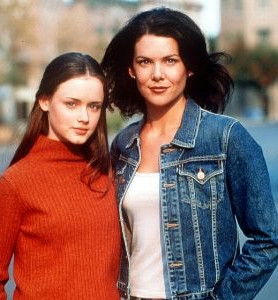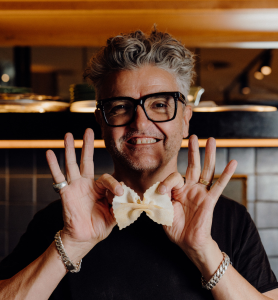In conversation with Olivia Arezzolo: the shut-eye specialist
In a world where waking up on the wrong side of the bed is a solid excuse for any bad behaviour and hitting the hay entails a four-step self-care routine prior (otherwise it's not happening), we are obsessed with sleep. Tracking it, talking about it and getting enough of it - it's not only a common conversation starter but a constant mind drainer too. We spoke to sleep expert and enthusiast Olivia Arezzolo, who opened our eyes to the importance of closing them for a good night’s rest.
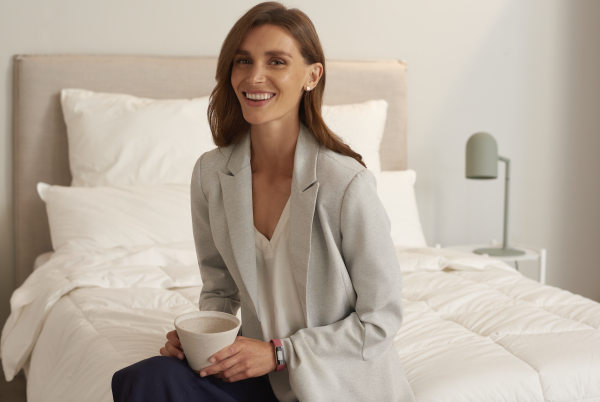
Why do you think sleep is such a central focus for our generation?
We are so obsessed with our sleep because we lack it - severely. 2022 research by The Body Shop found 34% of Aussies are sleeping less than 6 hours a night, meaning that 1 in 3 are sleep deprived on any given day. As a basic physiological need, we fixate upon it in the quest to attain more. Without a clear understanding of why we are struggling, the market is hungry for a solution that actually works - cue the advent of sleep trackers, novel technologies, supplements and alternative remedies.
From tracking our sleeps to counting our hours of shut eye, how does obsessing over our sleep cycles affect our relationship with bedtime?
It makes us more mindful of the relationship between our actions and their consequences for our sleep which is beneficial. However, if we do not have a pre-bed action plan that improves our sleep quality, we can become very stuck - watching the numbers does not equate to healthier sleep, it just tracks it. From professional experience, I feel many individuals misunderstand this, which I believe is in part why 20% of Aussies are anxious about their sleep quantity, as found by The Body Shop’s study.
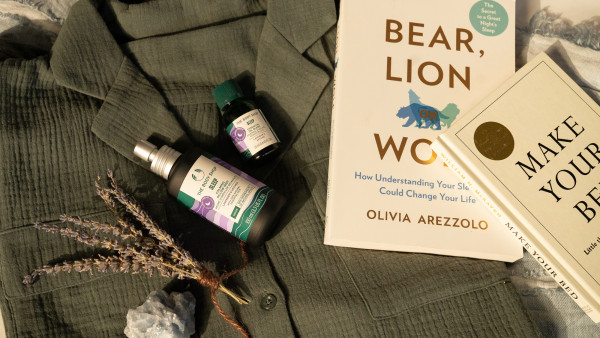
Sleep deprivation has been proven to have a strong correlation with a decline in mental health. Why is this the case?
Cortisol, our stress hormone, can increase by 37% after only one night of insufficient sleep, leaving us anxious, wired and unable to switch off. Long term, insomniacs are 17 times more likely to have an anxiety disorder and 10 times more likely to have depression. Similarly, a 2010 meta-analysis found sleeping less than 7 hours even increased the likelihood of suicide. This happens because sleep regulates and recharges our happiness hormones, such as serotonin and dopamine, and ensures that cortisol and adrenaline, our stress and awakening hormones, remain in balance. Without sufficient sleep all these mood hormones become imbalanced, leading to problems with mental health.
Research shows that the 15-30 age group is chronically sleep-deprived in Oceania. Why do you think our generation has had so many sleepless nights?
I feel the advent of smartphones has a lot to do with this - never before did we have the capacity to lay in bed, entertained for as long as we like. Greater pressure to ‘achieve it all’ is another factor. Culturally, Oceania strives to work hard, play hard and have a great social life. This is particularly evident on the weekend, when we are often up late socialising, contributing to a phenomenon called social jet lag - where you intentionally delay your bedtime and as a result, wake up exhausted the next morning.
Why is it important to have bedtime rituals and habits before hitting the hay?
It prepares us for sleep - each part of the bedtime routine is a cue for sleepiness, ideally both physiologically and psychologically. It primes the brain to expect sleep - and even more so if the stimulus promotes the production of melatonin and relaxes the sympathetic nervous system. With the majority of my clients and the community lacking a proper bedtime routine, this is a key reason why one third of Aussies are only getting 6 hours of sleep, and that 39% have expressed a desire to sleep more - as noted by the 2022 The Body Shop sleep survey. Another interesting finding in this sleep study is that many individuals are actually doing things as part of their nighttime habits which sabotage sleep - 22% eat within 2 hours of bedtime, 10% smoke / vape in the latter parts of the day, and 1 in 6 prioritise ‘me-time’ (perhaps watching TV or scrolling social media) rather than practising their sleep routine.
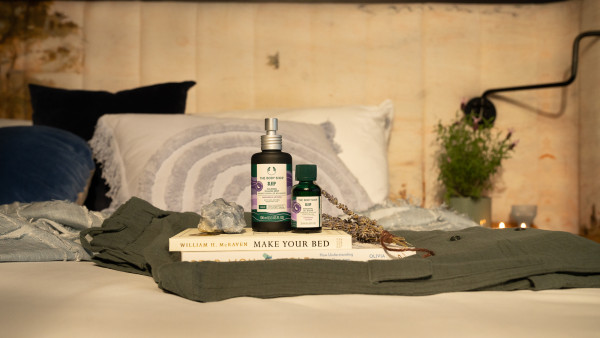
How can we optimise our daily routines for a good night’s rest? Can our daytime activities help us sleep better?
Yes, daytime activities such as getting up at the same time and getting sufficient light in the morning are helpful, however, as noted by the European Sleep Centre, the main focus for a good night's sleep needs to be on the nighttime activities. Specifically, reducing light in the home, having warm milk and honey before bed, taking a warm shower, banning electronics from the bedroom and setting your bedroom temperature to 19 degrees are all helpful for a quality night’s sleep. Similarly, there are products you can use that help - like The Body Shop’s SLEEP range, which is certified by the European Sleep Centre.
What is the Body Shop’s four-step sleep routine? How will it help us catch some z’s?
The Body Shop’s 4 step sleep routine, clinically backed by the European Sleep Centre to improve sleep, and help you wake more energised, involves:
- Step1: Wash with the Sleep relaxing hair & body wash.
- Step 2: Lavishly apply the Sleep balmy body cream
- Step3: Before hitting the pillow, spritz the Sleep calming pillow mist
- Step 4: When you jump into bed, dab the Sleep essential oil blend on your pulse points
The reason it works is due to the ingredients. Lavender helps activate the parasympathetic nervous system, to help us feel more relaxed; as does vetiver - two of their hero ingredients.



